
Michael “La MJC” Dupouy carries the kind of magnetic energy you’d expect from an individual who spends his time skirting the globe to curate an annual selection of the most influential products in street culture. Within the industry, his name is well-known within circles of people involved in fashion, art, or underground culture. What many don’t know is that he cut his teeth as a journalist and was one of the founders of WAD Magazine before his discerning eye caught the attention of Sarah Andelman of Colette. During his time with her, Michael worked as a buyer, helping to build the youthful, eclectic energy the legendary boutique is known for today. Today, he embarks on his eleventh volume of the All Gone Book, an annual compilation of streetwear’s best and continues to expand his brand Club 75 alongside a slew of other projects. Michael was gracious enough to spend time with Honeyee US to reflect in-depth on various subjects including the closing of Colette, the shifting fashion market, how technology has permanently changed the way we live, and more…
This is a big question. You probably can’t answer it one sitting, but let us know your gut feeling: with the store closing soon, what does Colette represent to you in terms of now saying goodbye? It’s a huge question, I know…
It represents a lot of things. She’s [Sarah Andelman] the kind of person you meet once in your life that you won’t forget ever. She’s one of the most important people I’ve met in this industry that trusted my taste, that trusted me as a human being to fly all around the world and to work with her. To be associated with her as a Colette family member and forever when that store closes December 20…I will be forever recognized in this industry and in this world as a guy who worked with Colette, or for Colette, or at Colette. That makes me very proud because I feel like I helped a little bit. Now knowing it’s going to be closed very soon is a big loss for my city regarding all the energy she brought to the city, for all people visiting us. You will see next fashion week; fashion week won’t be the same with Colette not being part of it.
It’s going to be so weird…
So the store represents to me, I don’t know, a big part of the family, a voice that put Paris on top of the map for a long time, and also it extracted femininity for Michael as a person. I was too far stuck in a masculine mindset, long time, and thanks to Sarah I changed my mind and changed the way I look at things. She extracted the femininity we all have to extract when you are too masculine.

When you were buying with Sarah for Colette, what was important for you in terms of the kinds of brands you were bringing into the store?
It’s like any buyer in the world. You have to buy with your gut. There’s always a risk. There’s always a money risk, but if you buy stuff that you will wear, and you don’t think market first, but you think about what you will wear, usually your store will be a success. Remember something: I was not buying alone. I was buying with Sarah for the webstore and the store. She was always having conflicts with me because she’s a woman and the place of a woman in our culture has always been minimized and we wanted to make sure that wasn’t the case in Colette. So sometimes she was like, “Are you sure about this? Are you sure about that?” I was like, “Hey Sarah, let’s try it online only and not in the store. If it’s good enough, we’ll place it in the store also. That’s how I brought in new things. It was always a discussion between me and her, and she also opened my eyes a lot to another way of buying for women, for thinking about details and colors. She educated me also a lot. I think I also opened her mind a lot, but being together as a duo, I think we were very powerful.

So what are the things you look for in a brand that would make you go like ah, this would work. This is a brand I would be excited about?
Oh that’s a tough question. It’s like you when you go to a store and you just discover something. Because for me when I’m buying something for a store, when I’m buying something for myself, it’s always a mix between how I look, and how much it costs, because cost is also something you have to think when you buy something for a store. If it’s too pricey, I’m like, “Should I really spend 1,000 euros on that shirt?” But if I ask the question myself, people will also ask themselves the question when they will buy to the store. Because you cannot only sell to rich clientele. You have to do a good mix in between the cost and something that you think has a value for you in the future and you’re going to keep. When I was buying with Sarah this was my mindset.


What about for the All Gone book? What makes you look at something and be like that’s going on my list?
It’s a professional eye. Let’s say the book is 256 pages. I can’t say that I will wear 256 products from the book everyday, but I think global and I think market. I think Asia, I think Europe, I think UAE, I think USA, and I think Latin America. We are in a global world with mostly tastes that are on the same level, but in Moscow they don’t dress the same as in London. In London they don’t dress the same as in Seoul, and in Tokyo they don’t dress the same as in LA. Different education, different temperature, and different way to absorb light–they’re all going to have this eye. You have to balance the page, because our fans and people buying the book are all around the planet, so I have to please different regions. So it’s different.
Let’s shift gears quickly; this year you attended the inaugural Innersect event and also participated in ComplexCon for the first time. What are your thoughts on why festivals like Innersect and ComplexCon have emerged, and why are they taking place now rather than earlier?
So it’s funny because it’s the first time I hear someone calling Innersect or ComplexCon a festival. I’m not calling it a “festival”–I’m still calling it a “trade show”. You’re calling it a “festival,” and this name is kind of interesting to me, because if you think about it, a festival–coming from my music side–is a place where bands play music and people come for the music first and buy merch related to the bands performing music. So let’s take the festival from Tyler the Creator for example. They all queue to buy GOLF, but at the end of the day they go to listen music. Innersect and ComplexCon are the opposite, but you still call it a “festival”. People come first to buy clothes, and then music is part of the stuff. I don’t know anyone going to ComplexCon for the music first. They come first to buy things, and that’s probably why I make a difference between calling it a “festival” versus a “trade show”. That’s my first note.

Then why it has been created recently. I think the B to B system (business to business) is dead. Thanks to the web, people only think about how they can sell direct to the consumer. Every brand wants to have their own retail and do less wholesale. Even retailers are thinking about how to sell their own collab before selling the stuff that they used to buy for the customer. I feel like now the business to business trade show, when you see a collection that will be available six months after, is completely dead.
There’s more and more see-now-buy-now culture. Even during catwalks and big fashion show, you can see and buy straight after. Nowadays, brands to do explicit stuff for a type of public that go especially to buy, and enjoy a whole environment, including culture, clothing, food and music. It’s bringing a little bit what they do on internet every day, but live, on a weekend.
Yeah, yeah. So I mean for you’re involved in Innersect and you had a special project with Sarah [Andelman of Colette] that released at ComplexCon. How was your experience at Innersect, and what’s your opinion on this kind of event?
It’s exactly the same way when a store that you don’t know emails you or calls you to carry your brand. Your hesitation is always the same: you can ask for the lineup of brands they have. You ask who will be close to you. You can ask if the city you are selling to is a city that match your DNA and your vibes. So when Innersect came to us, we were asking ourselves, “Should we go to Shanghai or should we not go to Shanghai?” Everyone says that China loves streetwear and China loves our culture, and we all know at some point China is an important market for us, so that was reason number one to say yes. Reason number two was because a powerful store, Innersect, would be carrying brands that I feel close to my environment, close to the DNA of my brand. It felt like I was going to a store that would be just a pop up of two days with lots of friends all around the world, from London, from Paris, from New York, from Japan, from Los Angeles of course. I feel like it was like a store calling us, “Yeah we want to carry all your brand, but plus I want you to be involved. I want you to design your own color, and I want you to be physically here…” Sounds wonderful.

So for me it was not only an opportunity, but an honor to be invited, because when I see the list, I was like wow, I’m going to be close to this guy, to this guy, to this guy, and I feel like oh they respect my brand enough to be involved into that list. So it was like yeah I’m doing it. Then on top of that, because our brand DNA is music, I wanted to be part of what they call the music side, and bringing my guys to DJ and perform there, to have the whole circle complete. That’s why we went.
Interesting. The existence of something like Innersect or ComplexCon in a way symbolizes where streetwear is like within the fashion world, right? Do you think about how the high fashion world has accepted streetwear and the mainstream has like-
It’s even not accepted. For me it’s even more crazy, because I’m an old guy, and when I started being involved in streetwear I didn’t feel like it was an industry. I feel like it was just a members club, with only a few people knowing each other and just recognizing themselves for what they wear. I knew in the beginning of the nineties, a guy dressed like me would know exactly what I was listening to my Walkman. Just the way that guy would be dressed up, it would be part of my–I won’t say family–but at least same culture. Because everything was banned. Sneakers was banned from a club. No one would invite you to parties if you were listening to what they call rap music today. Doing graffiti was bad. Galleries wouldn’t talk about street artists. It was a world completely banned. And 20 years later, people are complaining that this industry has become so popular and turned into a pop thing, and I feel like it’s a victory for us being the most consumed culture in the world today from Africa, China, America, Europe. This culture is number one, number one on the charts, number one on sales, and it’s a victory. The high fashion world, like you mentioned, now call owners of streetwear brands to do colorways. You know what I mean? Some people complain about this, and I understand why they complain because everything becomes so marketed and like a machine that has lost its soul, but it’s also a victory regarding where it coming from…

It’s so funny that you mention the part about seeing someone dressed like you in the nineties and what it meant back then, because that’s something actually that Frazier (Cooke) mentioned when we were talking with him in Tokyo. He said that back then if he was on the train and looked across the way and he saw a guy with a Supreme t-shirt or something like that, he would know immediately that maybe this guy listens to the same music as me, maybe we have something to talk about…
Yes, when I was a kid looking for a Supreme box logo, looking for Goodenough t-shirt, looking for a Bape outfit–even for Frenchmen like me–I knew that guy would be able to possibly be friends right away. Or at least we could sit in a bar like you and I now and have the same type of conversation, because to access this kind of culture, you had to travel, meet people physically, and understand. Or read books or magazines at least, or I don’t know…from Source Magazine to some graffiti magazine, you are part of a small world who knows about it. That’s why we consider us as a very private club. A member’s club.
Right, that’s absolutely something I think that’s a universally shared experience. Anybody who came up within that culture from the beginning, that’s one of the first things that they say. Your perspective on ComplexCon is interesting – some people question if their existence is a manifestation of the beginning of the end? Has something that was originally created as something that was exclusive and special changed?
There’s a lot of people in that scene that have completely lost their enthusiasm and they think our culture has become such an industry that we lost everything. So there’s two points of view. One, you are pessimistic and you always say it’s the end. Supreme has sold it’s soul to Louis Vuitton, and there’s too much marketing, and there’s too much social media, blah, blah, blah. Or you feel like me: it’s not the end–it’s the new era. It’s out first victory, and we gave a baby, which is now 20 years old, to a new generation that will lead themselves a different away with new tools, and that new tool is called the web. The web changed everything. Social media changed everything. The next revolution will be, what do you guys call it here, “artificial”…
Virtual reality?
Virtual reality. So 20 years after the baby changed thanks to the web, and that new generation will change again thanks to that reality. And we will be not the father–we will be grandfather of what we saw growing up in 30 years or 40 years. That’s not the beginning of the end. That’s a following of natural process. I’m not the one who will be complaining even if I’m turning old. Even if sometimes I’m a bit, I won’t say shocked, but surprised how things turned out I will still be positive and say that for coming from where we’re coming from, this is still a victory, not a failure.

So here’s the loaded question: what are your thoughts on Louis Vuitton Supreme?
It’s exactly what I said. There’s two ways to see this project. You can see the victory of a culture taking those people who used to look at us in front of a club like “oh, you are a piece of shit from street culture,” and have them in a place where now they say, “Please, do something with me because you are so cool. We are dying without you.” Or there’s the grandpa way, always complaining about everything. “Oh streetwear lost it’s soul. This is the beginning of the end. Supreme is dead.” People complain about everything anyway. They complain for a train being late. They complain about ecology. They complain non-stop. So if you only listen to these voices, it’s too late. Everything is too compromised to theme. They say underground disappeared, and I disagree. “Underground” didn’t disappear. Underground may be harder to find than before, but it still exists.
Why do you think people love streetwear so much right now?
Why? Because every fucking single human with influence wears that stuff and influences the masses. And because all the people behind those big fashion houses are now way younger now and they grew up with this music but they grew up with that [fashion house] culture, and when they were younger they were just influenced by Karl Lagerfeld and all these kind of people–but these people are getting so old, to keep the idea of being young they have to rejuvenate the brand with what they’re used to. That’s why Kim Jones is calling Hiroshi [Fujiwara], James Jebbia, and Virgil Abloh to be cooler. There’s no one from this [streetwear] industry who thinks Louis Vuitton was cool before that.

Alright, so also what’s your opinion in terms of brick and mortar retail? A lot of brands, like you said, are trying to take commerce into their own hands right now…
I started like that. I never do wholesale, and I do only pop up and direct to consumers. I’m on that side definitely.
You opened up the Club 75 store during a time when a lot of stores are closing doors. Why was it important for you to do that?
When only live in the web, something you will always be missing is the soul and the community, because you don’t know your customer, and you don’t create a community selling only online. You think you have one because on Instagram a community can be created reposting your stuff, but that’s not enough. In a store, whatever the size of the store, you will have a crew. You will have people who will hang out in the store, listen to music, talk about life, sit on a bench smoking weed, or skate and make an environment. For all the people visiting it or just seeing the store on social media—it creates soul. That soul cannot be only digitally. That’s why brick and mortar is still very important to me.

It’s important to give DNA to a brand. That’s why you do events in brick and mortar, you carry something that the web cannot carry. It’s hard to define but it’s true. It’s a reality that you have to bring to your customer at some point.
So what’s to you the anatomy of a good physical retail space? What are the things that you think about when you’re looking for a location and when you’re creating an environment?
I’m what they call a destination store. I created traffic in my street. There was no store. There was just a famous boulangerie, but my road was not famous for streetwear and I’m still solo. We do have some French fashion stores, but we don’t have anything street DNA. When I see an Uber in my small street, and the Uber stops, there’s two locations: the boulangerie or my store. If I’m lucky enough, they’re heading to both; they get the bread and they get my stuff. Every time I see people from Asia, people from America, people from London talking in that street, I’m almost sure it’s for us. I’m not saying that we became the number one destination in Paris at all, but just like people want to visit Supreme in LA, now I know when they go to Le Marais and they do my neighborhood because we’re here.
When I see people going to my store with a Supreme bag, Nike bags, or when I’m there in Le Marais and I see people with our bag, I’m like oh, we made something in two years. It’s still a small business, but I feel like we gather a lot of good energy thanks to a real community that comes into the store, sometimes not even to buy clothes, but just to hang out and have a chance to meet a DJ, to have a chance to cook with us, to have a chance to listen to good music–just hang out with us…
So did you specifically look for a destination location?
I looked at the location only close to my office, just because I didn’t want to run too far, and also because it was a location I can afford. I would be happy to be in Le Marais to be honest with you, but it’s also cheaper rent.
So in terms of the elements that you took there … I know music is a big part…
Completely. It’s completely. Sub-culture and music. That’s how I define our DNA.
If I was building a store, or if you were building another store, what are the things that you feel like are essential? Like area for a DJ to set up, bench, I mean those different kinds of things.
It’s small enough and big enough to have people come in for a small event because they can still settle inside. Minimalistic enough to just see the products and no bullshit around. We have a good sound system. We do have a place for DJs, and I don’t know why but the store feels representative in terms of how we can define ourselves. It’s not too minimalistic, not too pretentious, not too young, not too old. It fits the color of the city, blue and red like the tricolore. It’s assembled wood and metal, which are materials that I love.




What’s your perspective on this idea of that the lines have been blurred between high fashion and street fashion? Do you think that is something that is just where fashion is now? Or do you feel like this is something that’s just cool, a trend that’s-
No, that’s where fashion is now. A good example is Sarah from Colette, because she and her mom have always dressed like that for 20 years. They will have the craziest Comme des Garçons dress, or the craziest piece from the new Chanel show, but they will mix it with a bright Nike sneaker and a Supreme jacket. They have always dressed like that, and I feel like with the web, again, everyone is more open minded of mixing culture and mixing clothes, and I think the most revolutionary tool that has been created by the tech companies is not the iPhone as everyone says, but the iPod. Before Steve Jobs created the iPod, everyone was listening only to one genre and one style of music.

The iPod catalyzed the massive launch of the MP3 and the digitization of that world. Everything is more street. I’ve seen people get more open minded listening to other music. Rappers listening to electronic music. Electronic bands listening to rap music. Now there’s streaming content.
I never thought of that.
Think about it. I think that’s the key of how the world changed.
I think that’s a really interesting point–if you also look at the shift within this generation right now, one of the big things I think is really interesting is that you have these young street kids that are listening to rock music, that are fans of Nirvana and then going deeper and exploring Hardcore. Now they’re also crossing cultures and watching Japanese anime…
Yes, so it allows people to listen to things they never listened before, and it also brings people to the cultures this music comes from… YouTube too. Listening and seeing how people dress makes you see how you no longer have to dress within one genre.
In some ways too I even think the success of Fear of God is very much tied into the growth and exploration of different cultures…
Yeah, you see rappers wearing vintage rock and roll t-shirts…
In some ways when Jerry’s influence first started growing in fashion, he made it okay for a black kid to wear Rick Owens–not just okay, but cool. You know what I mean?
Yeah, right, right, right. And now Kim Jones is making it okay for a white dude wearing a suit to wear a fucking ugly red bag that says Supreme without knowing what the brand is… (laughs)
For you last year, for all the products that you covered in the book, what was the most important for you do you feel like for street culture?
Frank Ocean’s zine. Incredible product. You know when you buy something or when you get something, and you get it in your hand and you say oh wow, fuck me, how good is this? I didn’t expect such a quality printing, I didn’t expect such great photography. It was such a big object, and I feel like it was the best thing I had last year regarding our culture. Maybe you’re thinking I’m crazy for not mentioning a sneaker, but that zine was incredible. Contents, the way it was made, the CD included…everything was absolutely perfect.

You’ve always kicked off your infamous “All Gone Book Tour” at Colette during Paris Fashion week – with Colette gone, where are you going to do your All Gone release this year?
Maybe when we do special pop up, or maybe it will be simple in my store. I don’t know yet.
Next question is, what’s next for All Gone? I know you always have crazy things in store for the public. Are you doing another car collaboration? Do you have another special limited two-volume edition coming out?
So when I did the car and when I did the double edition, it was really because I wanted to celebrate a decade of doing All Gone, but now it’s year 12 and I forced myself to decline collabs, in order to avoid creating the perception of All Gone as a brand, but to emphasize All Gone as a book. The book has to be more compelling than any color. So next year I have few collabs here and there while I’m doing the [book] tour, but nothing crazy. I want to keep the book…
…as the focus…
As the focus. Yes. So just expect a nice cover and good content, but not crazy collabs.
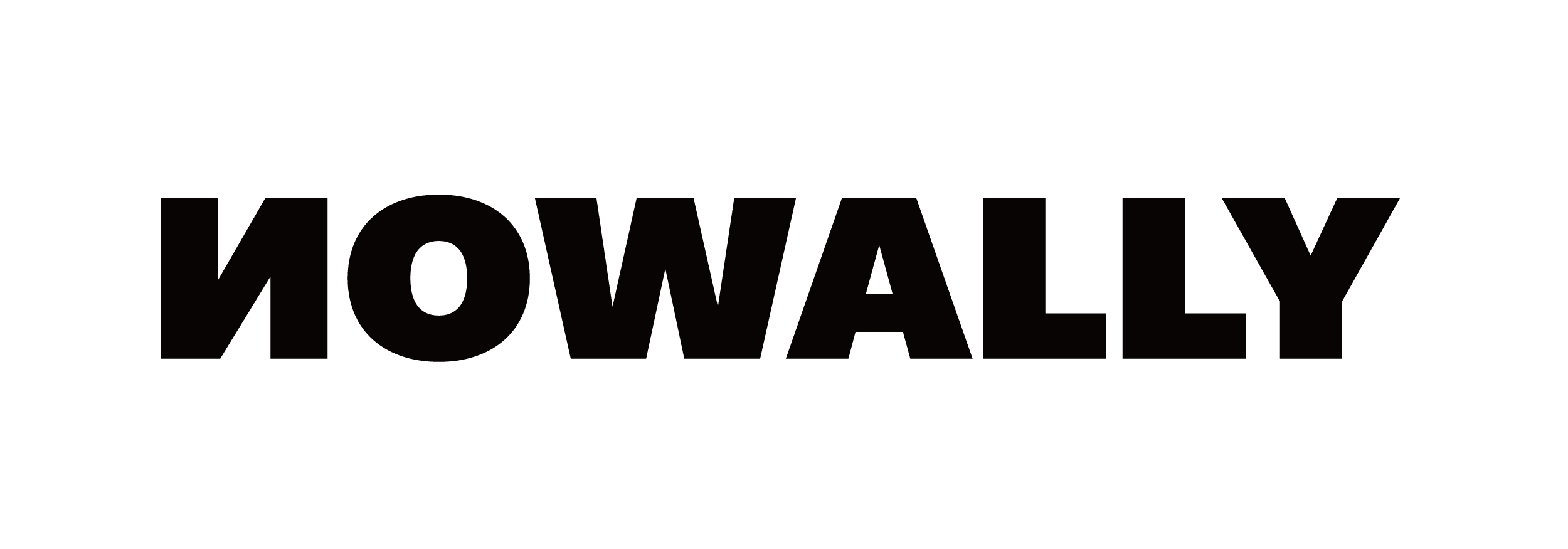
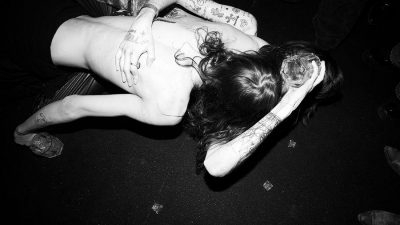
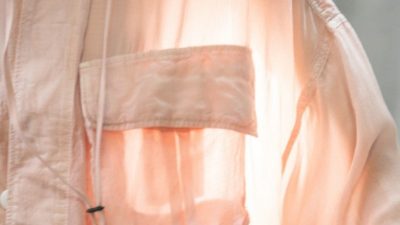
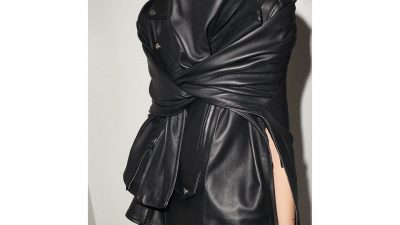
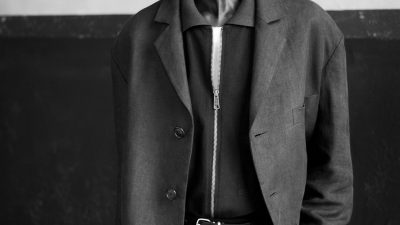

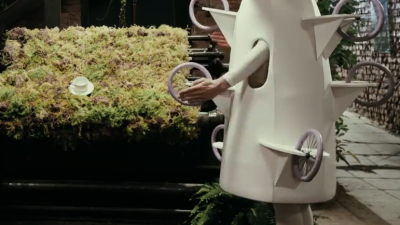
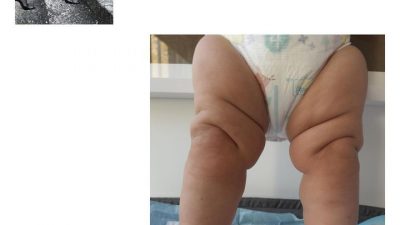
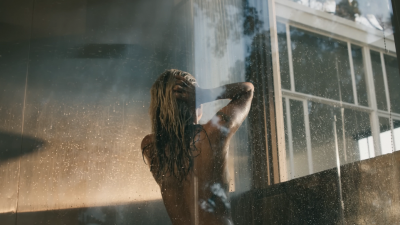
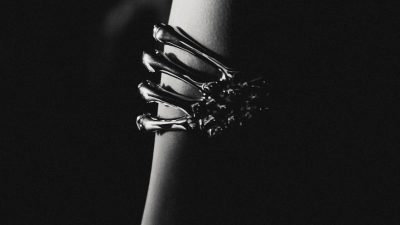
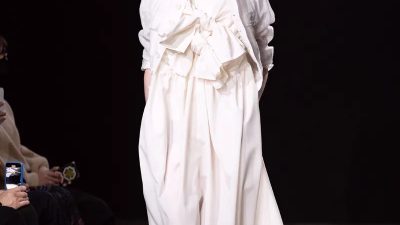
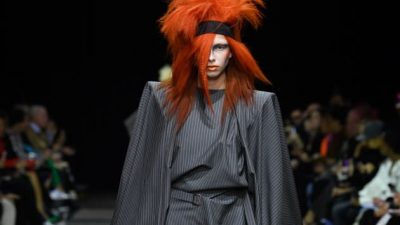
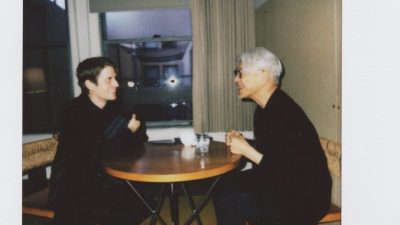


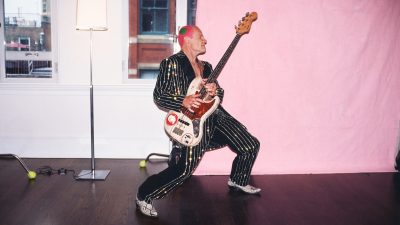
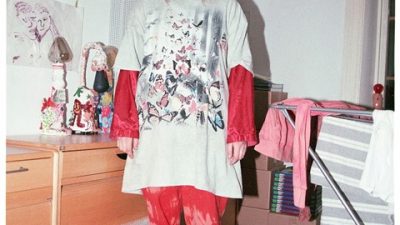
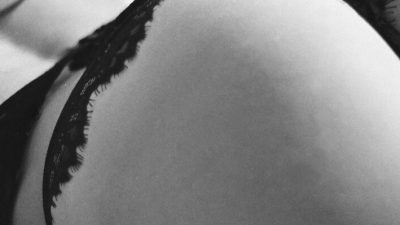
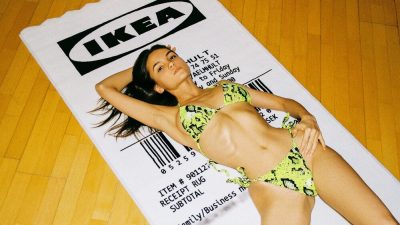
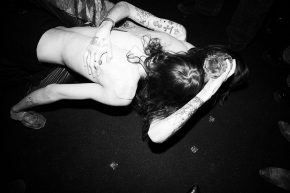
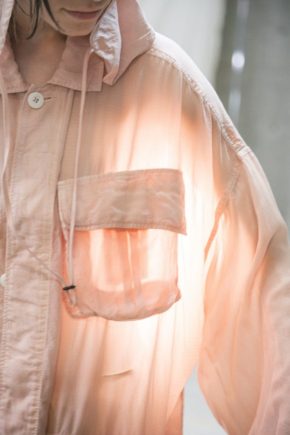
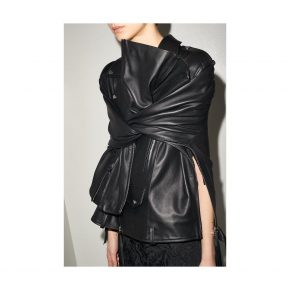
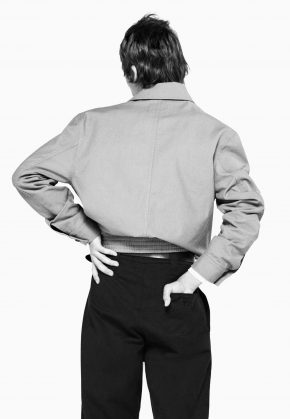
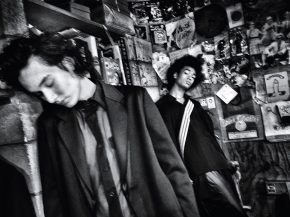
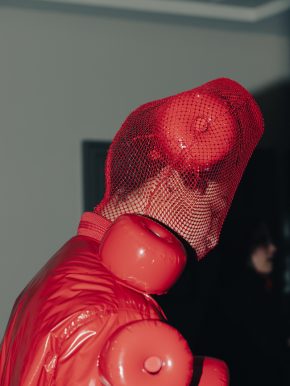
Comments